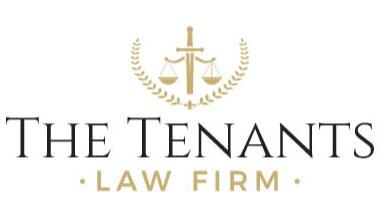Reasonable Accommodations in California and How They Affect Tenants With Service Animals
Under California tenants’ laws, reasonable accommodations are modifications or adjustments made to a rental unit or common areas to provide equal access and opportunity for individuals with disabilities. Some of these accommodations include modifying structures, disabled parking spaces near units, sign language interpreters, and most commonly, service animal accommodations (despite the no pet policies they may have). These are just some examples of such accommodations, but it is important to note that landlords have an obligation to work with tenants with disabilities to provide reasonable accommodations that are necessary to allow them full use and enjoyment of their rental unit. It is crucial for tenants to be aware of federal- and state- or county-specific accommodation laws, as this knowledge can help them avoid discrimination and know who to contact if they feel they are being taken advantage of.
When do federal or state reasonable accommodation laws protect tenants with service animals?
Under California tenant laws, tenants with disabilities are protected by state and federal fair housing laws, including the Fair Housing Act (FHA) and the Americans with Disabilities Act (ADA). These laws prohibit landlords from discriminating against tenants with disabilities, including those who have service animals.
The FHA is a housing-specific act which prohibits discrimination based on race, color, origin, sex, or disability, etc. In general, the FHA makes it illegal for landlords to discriminate against their tenants. The ADA protects accommodations in the workplace, public areas, and housing, and it requires landlords to make adjustments based on the situation of their tenants.
In general, a tenant with a disability who has a service animal or emotional support animal (ESA) is entitled to reasonable accommodations from their landlord under the FHA and the ADA. This means that landlords must permit the tenant to have the animal, even if they have a no-pet policy, and cannot charge additional fees or deposits for the animal. Landlords may, however, require documentation from a medical professional verifying the tenant’s disability and the need for the animal. It is important to note that each situation is unique, and the determination of whether a tenant’s service animal is protected by law will depend on the specific circumstances of the case. Tenants with disabilities who are facing discrimination related to their service animals should seek the advice of a qualified attorney or fair housing agency for assistance.
When is it not protected by law for landlords to accommodate service animals?
Landlords generally have an obligation to accommodate service animals for their tenants; however, there are circumstances in which the law may not protect the tenants based on the situation. Some examples include:
Direct threat from the animal: If the health and safety of the landlord or the staff is directly impacted by the service animal, the landlord may be allowed to deny the accommodation request.
Noncompliance: There are certain rules and regulations made by landlords related to pets. Service animals need to be taken care of and cleaned. If the tenant fails to comply with such regulations and the animal causes damage to the property, the landlord may be able to deny accommodation requests.
Undue burden: While not as common as the above examples, if a landlord can prove that having service animals will require extensive renovations to the property or causing significant financial hardship, the landlord may not be required to allow the animal.
It is important to note that such scenarios can only be applied on a case-by-case basis, which means that landlords are not allowed to ignore the service animal accommodations and need to carefully consider the situation before making a decision.
Service animal accommodations are crucial for many tenants, and contacting experienced attorneys is important if you are facing complications with your landlord. Tenants Law Firm is here to help. Our team specializes in these cases to protect you against discrimination. If you think you are entitled to a lawsuit, contact us by calling (310) 432-3200 or by using this form.

